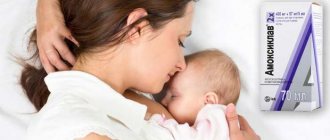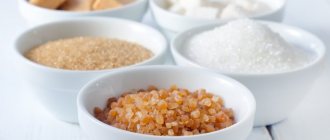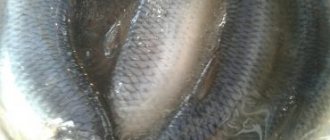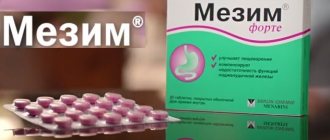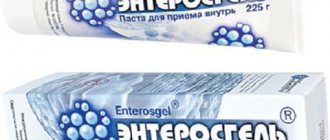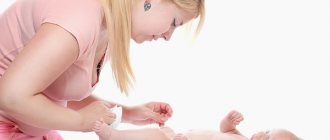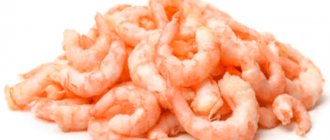Enterosgel is a medicine that is a new generation sorbent and is several times stronger than activated carbon. Enterosgel helps to cope with problems such as poisoning, allergies, atopic dermatitis, acne. In this article we will talk about whether this medicine passes into breast milk, whether it is allowed for breastfeeding, and also about the cases in which it is prescribed to newborn babies.
Enterosgel removes the following substances from the body:
- bacteria;
- food allergens;
- alcohol;
- poisons;
- medicines;
- radionuclides;
- antigens;
- salts of heavy metals.
Also, this sorbent can remove various metabolic products produced by the body. These include: cholesterol, bilirubin, urea, lipid complexes.
Enterosgel helps restore the normal microflora of the gastrointestinal tract, while without interfering with the absorption of vitamins and minerals into the body, it is excreted 12 hours after administration, without changing its appearance and without penetrating into the blood and breast milk.
Enterosgel is allowed during breastfeeding.
Indications for use
Enterosgel can be used in the following cases:
- intoxication of any severity and of various origins;
- poisoning with poisons, alcohol, potent drugs, alkaloids;
- intestinal infections of various origins. This could be salmonellosis, dysbacteriosis, dysentery, diarrhea;
- purulent diseases caused by intoxication;
- various manifestations of allergies, both food and drug;
- viral hepatitis;
- renal failure;
- prevention for workers in hazardous production. When working with xenobiotics, heavy metal salts, nitrogen oxides, fluorides, petroleum products, mercury, arsenic.
Use for allergies
Women who are breastfeeding may have food allergies. Signs of atopic dermatitis are:
- rash;
- itching;
- redness;
- dry skin;
- cracks;
- nausea;
- vomit;
- problems with stool;
- formation of gases;
- colic;
- allergic rhinitis;
- ARVI.
These cases can also occur in infants. If these symptoms occur, a nursing mother should immediately contact her doctor.
What can you do if you have an allergy?
During breastfeeding, women must follow a diet. A nursing mother's menu should not contain foods that can aggravate allergies. If there is an improvement in the condition of the mother or her child, depending on the removed product, then it can be established that one or another ingredient provokes the manifestation of atopic dermatitis. Therefore, it needs to be removed for a certain time.
If a newborn baby is breastfed or fed, you need to consider its menu, removing one product at a time until the allergen is identified.
How to deal with diathesis?
Enterosgel can be used by women during lactation to cope with food allergies. This remedy also helps children with atopic dermatitis. With this drug you can remove toxins from the body, which allows you to avoid taking a bunch of other medications. It is important to follow a special diet. If such therapy does not help, you should consult a doctor. He will prescribe additional treatment, including external, antiseptic and other agents.
Reviews from many doctors say that this drug is the safest sorbent that can be taken even by children from the first days of life. For women during lactation, it can also be used to treat allergies. The instructions for use indicate the dosage depending on the age and case of use of Enterosgel. Usually take one teaspoon or dessert spoon three times a day, diluted in triple the amount of water or washed down with water. It is advisable to take it an hour before meals or an hour after meals. The duration of treatment depends on the severity of the condition. Usually, for better effect, doctors prescribe it for 12 days.
For Enterosgel to help much faster and more effectively, it is better to use it on an empty stomach. Thus, the drug will be able to prevent allergens from entering the blood and remove them from the body in a shorter period of time. Adults are usually prescribed 45 grams per day. However, no negative effects were detected when this dose was increased.
It has been noticed that allergies are quite often associated with the state of the immune system. Therefore, it is very important to take care of the proper functioning of the immune system. To do this, you need to quickly get rid of toxins that cause allergies.
This disease most often manifests itself due to disturbances in the functioning of the gastrointestinal tract and intestinal disorders. The same situation can negatively affect the functioning of the immune system. To get rid of allergies, you need to quickly put your digestive system in order. Enterosgel helps tidy up the intestinal microflora and neutralizes toxins that cause allergies . This drug prevents the manifestation of a reaction to the allergen in the future, and also reduces the number of manifestations of the disease, making them easier. It can be used for any allergic reactions.
Is it safe to take Enterosgel during lactation?
During lactation, Enterosgel is often prescribed to mothers with digestive problems, exacerbation of allergies, rotavirus infection and poisoning. However, many young mothers doubt whether treatment is worth it, because myths about the dangers of any medications during breastfeeding are still strong in society.
Irrational belief in the incredible immunity of young mothers also plays a role, and multiplied by the advice of the older generation leads to refusal of treatment.
Meanwhile, a nursing mother often needs Enterosgel to remove toxins, overcome intestinal disorders and quickly return to work - after all, she has a baby in her care.
Enterosgel during lactation: will not harm milk
Often women refuse to take Enterosgel while breastfeeding for fear of losing milk, but these fears are in vain. The sorbent binds and removes toxins, breakdown products, allergens and pathogens from the body. Vitamins, minerals, and valuable compounds are not bound by the sorbent and remain in the body.
The active ingredient of Enterosgel, polymethylsiloxane polyhydrate, is inert and is not absorbed in the intestine, so its penetration into the bloodstream, and especially into breast milk, is completely excluded. Therefore, there is absolutely no need to worry about whether Enterosgel can be used while breastfeeding. Moreover, the use of sorbent can improve the quality of milk.
The main indications for taking Enterosgel during lactation are as follows:
- poisoning, including food poisoning;
- digestive disorders accompanied by diarrhea, nausea, flatulence;
- allergic reactions;
- infectious diseases in mother.
At the same time, treatment with enterosorbent for a nursing mother takes on special meaning.
Allergens, breakdown products of undigested food, bacterial and viral toxins in case of poisoning and infectious diseases inevitably penetrate into breast milk, causing harm to the baby's body.
Therefore, diseases such as allergies, dermatitis, ARVI, influenza and rotavirus, in addition to banal poisoning and diarrhea, must be treated using Enterosgel.
During lactation, the instructions for use recommend first consulting with a doctor, however, if a specialist is unavailable and the mother does not have clear contraindications, treatment can begin before the therapist arrives.
Correct dosage of Enterosgel during breastfeeding
During breastfeeding, Enterosgel is usually prescribed by a doctor, and dosages are selected strictly individually, especially if the sorbent works as part of therapy for inflammatory and purulent processes, and is also included in complex treatment regimens. In case of poisoning and general malaise, accompanied by diarrhea or flatulence, there are no such strict requirements, but there is a need to start treatment as quickly as possible.
The instructions suggest using Enterosgel during lactation as follows: stir a tablespoon of gel in three tablespoons of lukewarm water and drink 2-3 hours before meals three times a day.
If treatment is carried out in combination with other drugs, a break of at least 1.5-2 hours is required between taking Enterosgel and other drugs.
No cases of drug overdose have been identified, however, if a single dose exceeds 1.5 tablespoons and a woman drinks too little liquid, there is some risk of constipation. This is why Enterosgel must be washed down during breastfeeding, and, if there are no problems with the kidneys, drink plenty of liquid.
It should be remembered that fluid consumption in the body of a nursing mother is much higher!
Enterosgel may be contraindicated for breastfeeding mothers with intestinal atony, however, such a disease is quite rare. Reviews and instructions clearly note that renal and liver failure, although not contraindications, can complicate the treatment process: aversion to the drug and nausea are possible.
The duration of the course of sorbent administration varies depending on the disease.
Enterosgel for breastfeeding, the instructions for use recommend using it in case of poisoning for a week, however, if we are talking about the treatment of allergies, atopic dermatitis or complex treatment of infectious diseases, it can be taken in long courses. In some cases, for long-term use of the sorbent, it may be advisable to adjust its dose - this is carried out by a doctor.
Can Enterosgel be taken by infants?
The instructions allow Enterosgel to be prescribed to mothers during lactation without restrictions; this drug is also allowed for use by a baby from the first days of his life.
However, in case of any ailment of the baby, it is recommended to consult a pediatrician, but not because of the properties of the drug, but because some diseases of the baby can be disguised as banal poisoning and at the same time be extremely difficult for the small organism.
The drug should be given to a breastfed baby as follows: half a teaspoon of gel should be mixed in two tablespoons of breast milk and given to the child using a bottle or disposable syringe with the needle removed. As a rule, Enterosgel is given to children before each feeding, since the rate of metabolic processes in an infant is higher.
Treatment with Enterosgel enterosorbent for viral infections is usually prescribed simultaneously to both mother and child. This practice allows you to avoid many complications that can lead to loss of lactation.
With such appointments, the mother is required to be attentive and strictly adhere to not only the baby’s treatment schedule, but also all the instructions on which her health depends.
After all, it is the condition of the mother that largely determines the health of the baby in the first years of life.
Source: https://enterosgel.info/enterosgel-pri-laktacii/
First aid for poisoning
Eterosgel can be used not only in cases of food or other allergies. The use of this remedy for poisoning has received good reviews.
Poisoning occurs as a result of eating spoiled foods in which pathogenic microorganisms and toxins multiply.
Signs of poisoning may include:
- abdominal pain;
- heat;
- nausea;
- vomit;
- bowel dysfunction;
- weakness.
Signs of poisoning may appear several hours after spoiled foods enter the body. There are cases when these symptoms appear within half an hour after eating.
If a nursing mother experiences poisoning, she can take Enetrosgel or another sorbent that is on hand. Activated carbon or Smecta can also help.
If you feel slightly unwell, you can do without medications. To remove toxins from the body, you need to rinse your stomach. To do this, you need to drink half a liter of water and vomit. Sometimes a weak solution of potassium permanganate is used. The procedure must be repeated several times.
If there is no bowel disorder, diarrhea in particular, you can do an enema.
In any case, a nursing woman needs to see a doctor to prevent complications.
Enterosgel and breastfeeding
Adsorption of toxic substances and pathogenic microflora
What should young mothers who are breastfeeding do if food poisoning or other digestive problems occur? A nursing mother is not immune from food allergies. In these situations, Enterosgel will help.
Will the milk go to waste?
One of the fears of all breastfeeding women is: “Will there be problems with lactation when using the medicine?” The milk will not be wasted because neither the gel nor the paste penetrates into the blood through the walls of the digestive system. The active substance - polymethylsiloxane polyhydrate - is not absorbed from the intestines into the bloodstream. For this reason, drug molecules do not enter milk.
During lactation, a doctor may prescribe Enterosgel to a woman in the following cases:
- diarrhea, which is accompanied by flatulence and nausea;
- allergy;
- poisoning;
- infectious diseases.
The doctor also selects dosages for the patient, since the approach to each nursing mother must be individual. It must be remembered that the drug should be taken during a break between meals and other medications.
Treatment of diarrhea and poisoning takes up to five days. If this is an allergic reaction, the course of taking Enterosgel can be increased to 20-22 days. If the symptoms of the disease do not disappear, only a doctor can extend treatment.
A nursing woman should follow a drinking regime, because the binding properties of the drug contribute to constipation. To prevent the development of such a problem, it is necessary to consume a sufficient amount of fluid (at least 2 liters per day).
The drug is so safe for the baby that you can put the baby to the breast immediately after taking the gel.
Expert opinion
Sokolova L. S.
Pediatrician of the highest category
Enterosgel is a drug that must be present in the home medicine cabinet as a remedy that is indispensable for many diseases and harmless even for nursing mothers.
Use of the drug in infants
Many reviews from young mothers say that Enterosgel helps cope well with diathesis, dysbacteriosis and jaundice in newborns.
To help your child cope with the disease, you first need to see a doctor. After the examination, he will prescribe the correct treatment regimen. But still, it is better if a nursing mother knows how to use the drug for infants.
For example, if your child develops small dots or reddened cheeks on their cheeks or body, this may indicate an allergic reaction. In this case, Enterosgel can quickly help. And, of course, a diet that excludes the consumption of allergenic foods. This can help the sorbent quickly remove toxins from the body of a newborn baby.
Many infants suffer from various manifestations of allergies. Most often, diathesis manifests itself in the form of redness, rash or peeling of the skin. This can cause inconvenience not only to the child, but also to his mother. Enterosgel will help cope with this problem. It can quickly and effectively adsorb toxic substances and allergens and remove them from the child’s body without causing harm.
The use of the drug for the treatment of allergies and poisoning differs depending on age, as well as the severity of the disease. Therefore, it is so important to consult a doctor who will prescribe the correct regimen for taking Enterosgel.
Treatment of an infant
Enterosgel can be used if the baby has diathesis, dysbacteriosis or jaundice. However, before use, it is imperative to consult your doctor. He will be able to analyze the course of the disease and choose the right course. Parents will also need to independently monitor the situation and symptoms.
Allergies are most often observed in a baby when there is redness or small spots on the cheeks. To eliminate the manifestation, it is necessary to use the drug. Additionally, the woman should stop eating the product that caused the allergy. The sorbent included in the composition will help quickly and effectively remove toxins from the body.
In infants, it is quite common to notice allergies to certain foods that the mother eats. A negative reaction manifests itself in the form of a rash, red spots and severe peeling of the skin. The situation is dangerous because it causes discomfort for the baby and mother. To eliminate symptoms, it is necessary to use Enterosgel, which quickly and effectively removes waste and toxins from the body. In this case, the gastrointestinal tract will not be affected.
Only a doctor can determine the correct dosage. He carefully analyzes the age and severity of symptoms. That is why before using the drug it is necessary to obtain its consultation.
Use for prophylactic purposes
Enterosgel can be used not only to treat poisoning or allergies. It is often used as a prophylactic. The drug should be taken morning and evening according to the doses and methods indicated in the instructions. If a month after starting to take the sorbent no exacerbations occur, then you can stop prophylaxis with Enterosgel.
This product can also help in caring for the natural folds and perineal area of infants. It should be applied to problem areas before putting on a diaper. To do this, you need to dilute the drug with water in a one to one ratio.
1036
